Subtotal: $
Checkout-

Confronted by Dorothy
-

Insights on Courage
-

The Art of Courage
-

Why We Hope
-

Harlem Postcards
-

T. S. Eliot’s “Little Gidding”
-

The Need of Refugees
-

Listening to Silence
-

Editors’ Picks Issue 12
-

Traudl Wallbrecher
-

The Man Who Welcomed Immigrants
-

The Soil of Friendship
-

Thomas Müntzer
-

A Time for Courage
-

“What is Truth?”
-

Readers Respond Issue 12
-

At the March For Life
-

Why the Death Penalty Must Die
-

God’s Cop
-

The Teacher Who Never Spoke
-

Bonhoeffer in China

The Comandante and the King
How encounters with Christians thawed Fidel Castro’s atheism
By Raúl Suárez, as told to Susan Arnold
June 1, 2017
Available languages: español
Next Article:
Explore Other Articles:
During the fifty-eight years since the Cuban Revolution brought communism to my country, Jesus’ kingdom has been advancing in Cuba. As pastor of a Cuban church throughout these sometimes-difficult decades, I should know. Let me tell you my story.
I was born in a village on the northern coast of Cuba, where the sugarcane industry overshadowed every aspect of life. My father was a sugarcane cutter, which meant he worked at most three or four months a year. Life was hard. How do you feed a family of twelve when there is no work? When my siblings and I reached second or third grade, my father took us out of school. The girls cleaned, cooked, or washed for the landowners. They were paid next to nothing. We boys went to work in the fields, helping our father but earning nothing ourselves. Poverty and misery marked all of our lives, but together we survived. My father drank a lot, and his example prompted most of us to evade reality through alcohol.
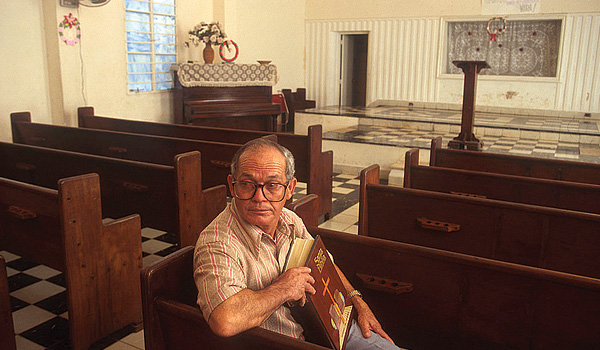
Raúl Suárez in his church in Havana. Photograph by Antonio Ribeiro / Gamma-Rapho via Getty Images.
I was sent to help a family in the country when I was eleven. After three years, I returned to town looking for work, which I found selling vegetables from a wheelbarrow. I was filled with hate and sadness, which I desperately tried to drown by drinking. One evening in December 1952, disgusted with the life I was living, I went to bed crying. I had no idea how to pray, but almost drowning in tears I repeated a Bible verse I had once learned, “Create in me a clean heart, O God, and renew a steadfast spirit within me.” Immediately I felt something new, although I didn’t understand what it was. That was the moment Jesus Christ came into my life. For the first time I could remember, I slept peacefully without being drunk.
I began to attend church services and was baptized five months later. A visiting preacher challenged us to use the new life God had given us. I said I wanted to become a pastor. Although I was almost completely illiterate, I passed the entrance exam to enter seminary at seventeen, with the help of the preacher and his wife.
Becoming a Christian in a Changing Cuba
The seminary was sponsored by Southern Baptists, so almost all my professors were from the United States. Through their influence, I began to adopt a new outlook. I wasn’t interested in what was happening in Cuban society, politics, and economics because the professors weren’t interested. Then in January 1959, while I was still in seminary, Fidel Castro’s revolutionary forces ousted US-backed dictator Fulgencio Batista. That was something one couldn’t ignore. I became interested in what the new government was doing to benefit the poorest and most disadvantaged.
The life of a Christian extends beyond the four walls of the church.
My wife Clara and I served as pastors in Colón for nine years. I was not of age for military service, but while we were there, I was drafted to the Military Units to Aid Production (UMAP). Despite its name, this wasn’t really military service, but rather a system of forced agricultural labor camps for Christians, criminals, conscientious objectors to military service, homosexual men, and anyone else the revolutionaries labeled perverse. That experience taught me that even though I had no pulpit or church, I did not cease to be a Christian pastor. In 1968, the government ended the UMAP system, and I returned home to Clara, my son Joel, and my newborn daughter Raquel.
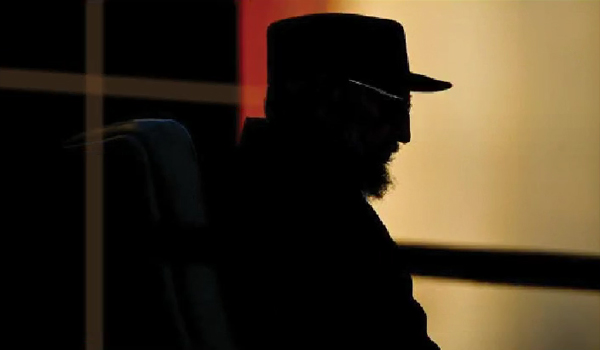
Photograph from lettera43.it
Although many Christians fled the country, Clara and I saw that the revolution did accomplish many good things. We couldn’t condemn it wholesale and flee; we had to find ways to address the bad things we saw. The life of a Christian extends beyond the four walls of the church. If we want things to change, we have to get involved where the problems are and work at them, without being Communists, without being politicians, but by being Christians. At this time, I read the Bible in a new light. The Bible tells us we are to be the salt of the earth, the light of the world, the yeast that makes the dough rise. Yeast makes bread soft – if you don’t put yeast in, it will be hard as rock. When Christ tells us to be yeast, he wants us to be an element of transformation in society.
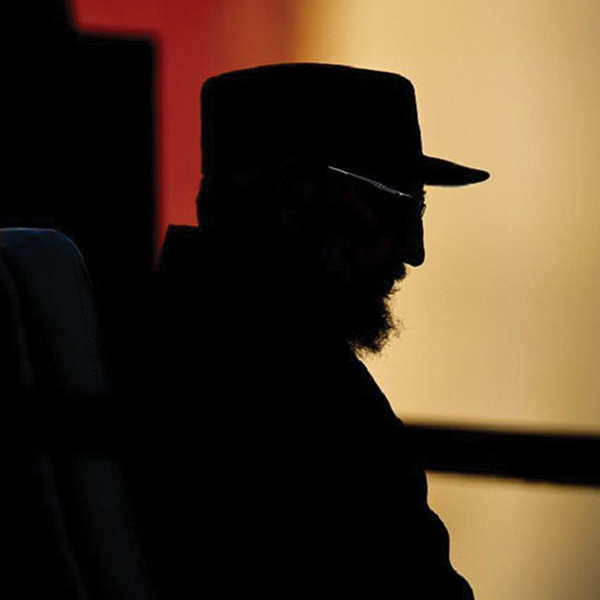
Already a subscriber? Sign in
Try 3 months of unlimited access. Start your FREE TRIAL today. Cancel anytime.
“Comandante, Take Off Your Hat”
In 1971, I became pastor of Ebenezer Baptist Church in Havana. At the time, scientific atheism was the official position of the Cuban government; Christians were viewed as second-class citizens and barred from government service and certain professions, including education. It was also difficult for a Christian to get a better job, and church activities were severely restricted.
In June 1984, Fidel Castro invited Rev. Jesse Jackson, a US presidential candidate, to visit Cuba. Jackson didn’t want to be invited only by the government but also by a Cuban church, so we invited him through the Cuban Ecumenical Council. Fidel – in Cuba, he’s universally known by his first name – asked Jackson to speak at the University of Havana. From there, the whole group, including Fidel, came to the door of our church.
We were having a service that day. We thought Fidel would just drop them off and go. What a surprise we had when one of his bodyguards said, “Comandante, take off your hat, you are entering a church!” He took off his hat, came in, put his hand on my shoulder, and said, “Look, I don’t know anything about your church; I only know the Catholic Church. Sit by me so when I have to do something, I can ask you and you can tell me what to do.” I told him, “That’s fine, you just do what I do.”
Later in the service, a young Christian from Jackson’s group asked Fidel to say a few words. He asked me, “What should I do?” I told him, “You don’t have to preach, just greet everyone.” So he spoke for five minutes. The whole thing was broadcast on television, and while Fidel was talking he had a Bible open on the pulpit in front of him and a cross behind him.
I wrote Fidel a letter thanking him for the visit and asking to meet with him. As far as I know, that was the first time anyone from the churches met with him. The Cuban Ecumenical Council wrote a document outlining our complaints. We discussed these with Fidel, and at the end he said, “I know some of you don’t drink, but I want to make a toast. It’s not too strong.” (It was daiquiris.) “If any of you are teetotalers, just wet your lips.” His toast was to make an agreement: “From now on, you work with the churches to understand what we are doing to help people, and I will work with my people to understand you.” When he said that, everyone took a drink; it was like saying amen!
There were changes after that. The government eliminated certain provisions in the constitution and added new ones guaranteeing religious liberty, not only for us but for all religious groups. Before that time hardly any Bibles came into Cuba. Today, between one and two hundred thousand Bibles come into Cuba every year.
Doing God’s Work in a Communist Country
In 1990, Fidel Castro went to the inauguration of the Brazilian president. When he arrived in Brazil, he was invited to visit some Christians. “If there were Christians like you in Cuba,” he told them, “they could even have Party membership.” That was printed in the papers. Clara and I didn’t like that – as if in Cuba there weren’t already Christians doing good things. So we wrote Fidel a letter. When he returned from Brazil, he called me up and said, “Get twenty Christians together, and we’ll talk about that letter you wrote me.”
At the meeting, we read Bible passages to Fidel and sang hymns. Afterward the Party changed its statutes and removed atheism as a requirement for membership. Finally believers who wished could become members of the Party. Although I have never been a member of the Party, there are many in the church who are. At the same time, the constitution was amended to remove the provisions promoting an atheist state and to specify the right of all citizens to hold religious beliefs and to practice the religion of their preference.
Around that time, too, a new electoral law was enacted. The Cuban Workers Union from the local neighborhood asked me if I would serve as their candidate to the National Assembly. I asked for time to decide. I spoke with my family, the church, and my neighbors. Finally I responded that if they would accept me as a pastor, I would accept. There was no problem. I won 94 percent of the vote in my district. From that time on I have been a member of the Assembly.
True prosperity is the abundant life in Jesus.
I do not earn a cent for this work. I am there because I am a pastor and a Christian, and because I am not afraid to work with people who think differently from me. I have never left an Assembly session feeling I needed to ask God for forgiveness for what I had said or for being there. I ask forgiveness for other things, but whenever I talk in the Assembly, I pray before I speak (and I speak in almost every meeting). I have often defended Christ’s cause in the Assembly. There are Christians who don’t understand or don’t agree with my decision. But a person first has to be in agreement with his own heart and his own conscience. And that has allowed me to get this far as a Christian and has given me the courage to continue in the Assembly.
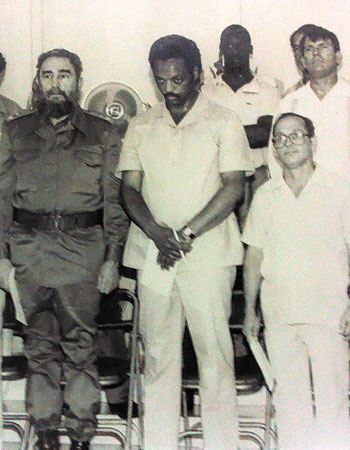 Fidel Castro with Jesse Jackson and Raúl Suárez, June 1984. Photograph from cmlk.org
Fidel Castro with Jesse Jackson and Raúl Suárez, June 1984. Photograph from cmlk.org
Already a subscriber? Sign in
Try 3 months of unlimited access. Start your FREE TRIAL today. Cancel anytime.
What Role Will the Church Play in Cuba’s Future?
When President Obama came to Cuba in 2014, he gave a speech trying to sell capitalism to the Cubans. But Cuba has not renounced socialism. Most Cubans have no intention of leaving the original ideals of the revolution, which are to build a new society on community values. Raúl Castro says, “The people elected me not to destroy socialism, but to save it.” Now, we asked ourselves, what kind of socialism is Raúl Castro talking about? He defines it as prosperous socialism, prosperous in the sense that the needs of the people should be satisfied. People should earn more so that they can live better.
When Raúl Castro said that, we in the church discussed what the Bible teaches about prosperity. And there we discovered that true prosperity is the abundant life in Jesus Christ. People should have a good quality of life both spiritually and materially. People should be able to earn enough with work and creativity to support a family. In our churches there should be no needy people. A church where some people can bathe every day and have nice clothes and good food while in the same church others cannot survive the winter because they have nothing to keep them warm and little food – this is not God’s will.
The Sermon on the Mount is the model we must follow to create scattered but united communities.
Right now many old people in Cuba are suffering; the church needs to get involved to see how to make this better. Another essential task of the church is to educate our children. We must teach them from a Christian point of view so they accept the good news of Christ, which is complete liberation – not just the freedom that comes from forgiveness of sins, but also a change of mentality that rejects selfishness and unites people. Singing hymns, reading the Bible, prayer, and preaching are all good, but the goal is to form community values, unselfish values.
Fidel Castro’s death on November 25, 2016, affected the Cuban people deeply. Although he has been demonized abroad, the social changes he masterminded have allowed our people to reach a standard of living we never had in the past, and he will continue to be an inspiration as we meet the challenges of the immediate future. Thanks to all we’ve been through since the revolution, an ethical, moral, spiritual thread runs through Cuban culture, influencing the social and political life of the people. Those of us who still believe in this project of creating a more just and more human society will continue to care for this legacy.
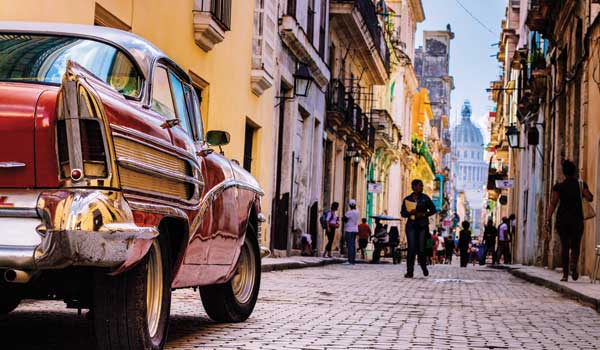
Havana, Cuba, 2017. Photograph by Steven Sheehy.
After all, Fidel Castro didn’t invent these ideals. They have been integral to Christianity from its very beginning. The Bible gives a clear picture of how the early Christian communities “had everything in common” and distributed their goods “to all, as any had need” (Acts 2:44–45). Eberhard Arnold, who founded the Bruderhof community movement in 1920, was convinced that it is still possible to build such communities, where members are “of one heart and one soul.” By living and sharing together, no one should be in need.
This vision brought Arnold to believe that private property is at the root of many of the evils in modern society. From the beginning, his pastoral vision was to build a productive, sustainable community that would be actual good news to the dispossessed and oppressed, the widows and orphans, the foreigners and slaves. Just as Peter’s sermon at Pentecost called out a “faithless and perverse generation,” such a community, if authentic, would be a prophetic fellowship. It would, by its sheer existence, repudiate the powers of sin, inequality, and injustice in a class society.
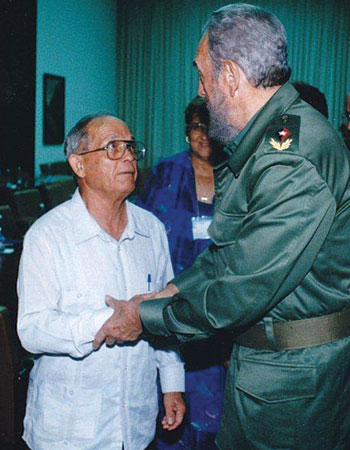 Suárez and Castro at a meeting with Cuban church leaders. Photograph from cmlk.org
Suárez and Castro at a meeting with Cuban church leaders. Photograph from cmlk.org
Already a subscriber? Sign in
Try 3 months of unlimited access. Start your FREE TRIAL today. Cancel anytime.
I have printed and distributed a Spanish edition of Arnold’s God’s Revolution: Justice, Community, and the Coming Kingdom to churches throughout Cuba. In this book, Arnold recaptures the importance of Jesus’ prayer, “Thy kingdom come, thy will be done, on earth as it is in heaven,” and of his words to his disciples that “the kingdom of God is in the midst of you” (Luke 17:21). But Arnold also makes another very important point, which the Cuban church and followers of Christ everywhere should never forget: the kingdom of God can neither be reduced to, nor fulfilled in, any political, economic, or social system. As the early Christians taught, we must both see and be “seeds of the Word,” signs of the kingdom that sprout throughout history, even if that kingdom’s fullness awaits us in God’s future. We are called to work with “hunger and thirst for justice” toward that great day here and now.
As we seek a new economic model in Cuba, the history of this communal movement, the Bruderhof, is an incentive to be faithful and above all to hold on to communal values so that there is no space, however small, for consumerism, individualism, profiteering, or the destruction of God’s creation. Without a doubt, these are the causes that have led humanity to the brink of ethical, moral, and spiritual catastrophe, putting life on our planet at risk.
Finally, in these times when the victory of evil over good, death over life, the letter of the law over the spirit of the law, otherworldliness over the integrity of creation seems a fact, we must return to the source, Jesus of Nazareth. We must reconsider the church structure that has taken shape since the time of Constantine, an imperial church and a Christian empire lacking the essence of the communities founded by Jesus. The Sermon on the Mount is the model we must follow to create scattered but united communities – to continue to build, wherever we live, church community as a visible sign of the beloved community that awaits us in God’s future. In this task, as Martin Luther King Jr. says, “the arc of the moral universe” is on our side.
Translated by Susan Arnold. This article is based on interviews on June 1–7, 2016, and January 4, 2017.
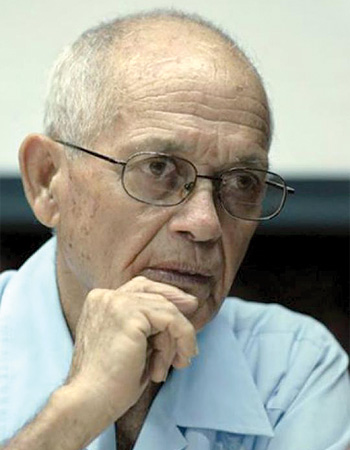 Raúl Suárez Photograph from minrex.gob.cu
Raúl Suárez Photograph from minrex.gob.cu
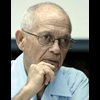 Raúl Suárez
Raúl Suárez
is a Baptist pastor, founder and former director of the Martin Luther King Center in Havana, and a member of Cuba’s National Assembly.
Already a subscriber? Sign in
Try 3 months of unlimited access. Start your FREE TRIAL today. Cancel anytime.































Jason
Excellent article . One of the best articles I've seen in Plough for sometime . Very pithy . Succinctly gets to the core of the way of life promoted by Jesus of Nazareth .